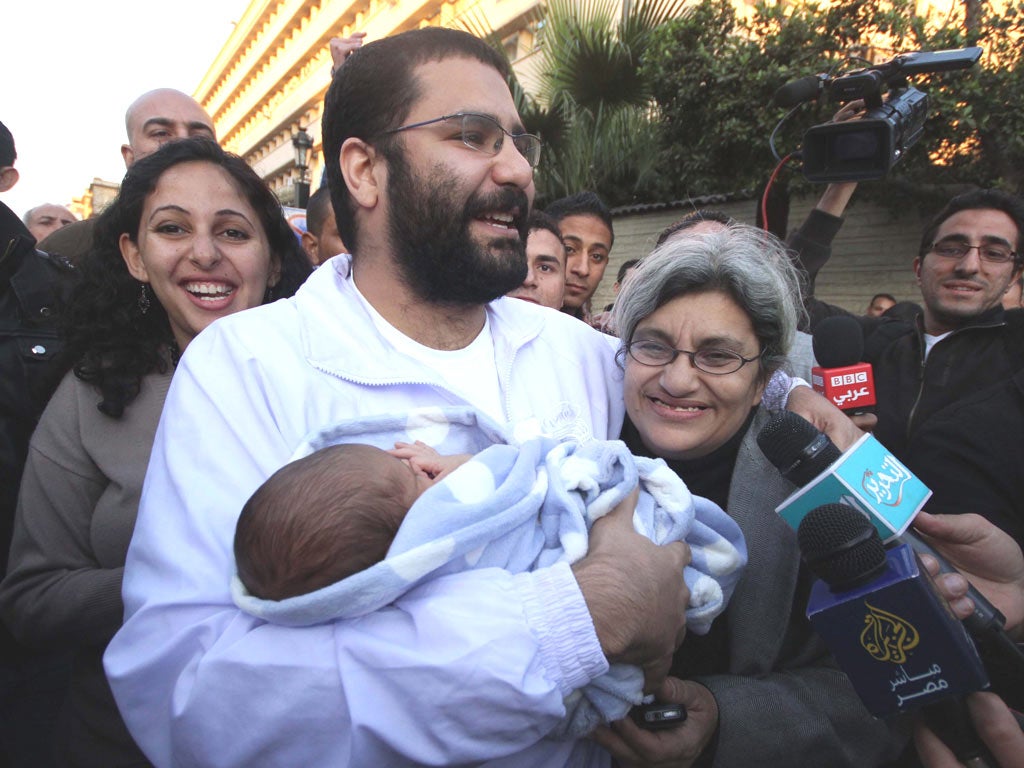Egyptian blogger freed from military detention

A prominent Egyptian blogger and democracy activist was released from military detention yesterday, nearly two months after his arrest on suspicion of inciting violence sparked outcry at home and abroad.
One of the first faces Alaa Abdel-Fattah saw when he emerged from his incarceration was his new son Khaled, born during his time at the Tora jail south of Cairo and named after a blogger killed during the turmoil in Egypt this year.
Mr Fattah was summoned by a military prosecutor in October after an article he wrote for Al-Shorouk newspaper blaming the military for the death of an activist during bloody clashes with Coptic Christians that month. Mr Fattah has always denied the charges and refused to recognise the right of the military court to arrest and interrogate civilians. He is among an estimated 12,000 Egyptians who have been brought before military courts since the army assumed interim power last February.
"I was imprisoned by the military prosecutor as a punishment for insisting on appearing before a civil judge," he wrote in a recent message smuggled from his cell.
An investigative judge ordered his release Sunday without charge. No further details were given.
Join our commenting forum
Join thought-provoking conversations, follow other Independent readers and see their replies
Comments
Bookmark popover
Removed from bookmarks